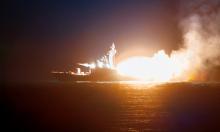Big spring landslides may happen in Pakistan quake zone
A U.N. survey of earthquake-wracked northern Pakistan warns it will take five years to restore roads in the region and that massive landslides triggered by snow melt will cut off more villages already struggling to survive. The assessment promises more misery for nearly 3.5 million people left homeless in freezing conditions by the Oct. 8 quake. Heavy snow and rain has forced repeated suspension of aid flights, while a wave of landslides has cut off deliveries by truck.
But conditions are expected to deteriorate in the coming months, when the thick blanket of snow covering the mountainous Kashmir region begins to melt, the U.N. World Food Program said in a two-month study released earlier this week.
The waterlogged soil is expected to trigger new landslides that will damage roads and bridges already partially wiped out by the quake. Tumbling earth will also cause widespread flooding as it blocks rivers and force snow melt over their banks.
"The needs and duration of assistance could be greater and longer than originally anticipated, and helicopter operations should be maintained to supply tools, equipment, chemical fertilizer, seed and food," the WFP's operational update said.
It will take several months after the April thaw to clear main roads for four-wheel-drive vehicles, while smaller roads could take up to five years to repair, it added.
To avert flooding, relief workers are setting up pumping stations at places where rivers have already been jammed by landslides.
The WFP, which coordinates aid deliveries to quake-hit Kashmir and neighboring regions, has supported more than 9,000 flights since the October earthquake.
Overland routes bring food and supplies to roughly 500,000 of the 1 million people being fed by the WFP. Helicopters, by contrast, reach only 380,000.
The earthquake killed 87,000 people, but aid workers worry that death toll will rise as the harsh winter weather intensifies hunger and misery. Many are without adequate shelter, clothing and are heavily reliant on food aid.
Facing an increased threat of fire as refugees try to warm themselves at the numerous tent villages that have sprung up, the Pakistani army began setting up firefighting stations at the camps on Friday.
The sites are equipped with fire extinguishers, buckets of sand and water and shovels. Soldiers also began drilling refugees on what to do when fire breaks out.
Several people have died or been injured in Kashmir and northwestern Pakistan in recent weeks because of fire inside tents.
Despite frequent calls for donations, officials say the United Nations is still far short of the US$550 million it needs to keep its projects running at full capacity. In November, the United Nations forecast the long-range cost of the earthquake would be US$5.2 billion, reports the AP.
D.M.
Subscribe to Pravda.Ru Telegram channel, Facebook, RSS!





